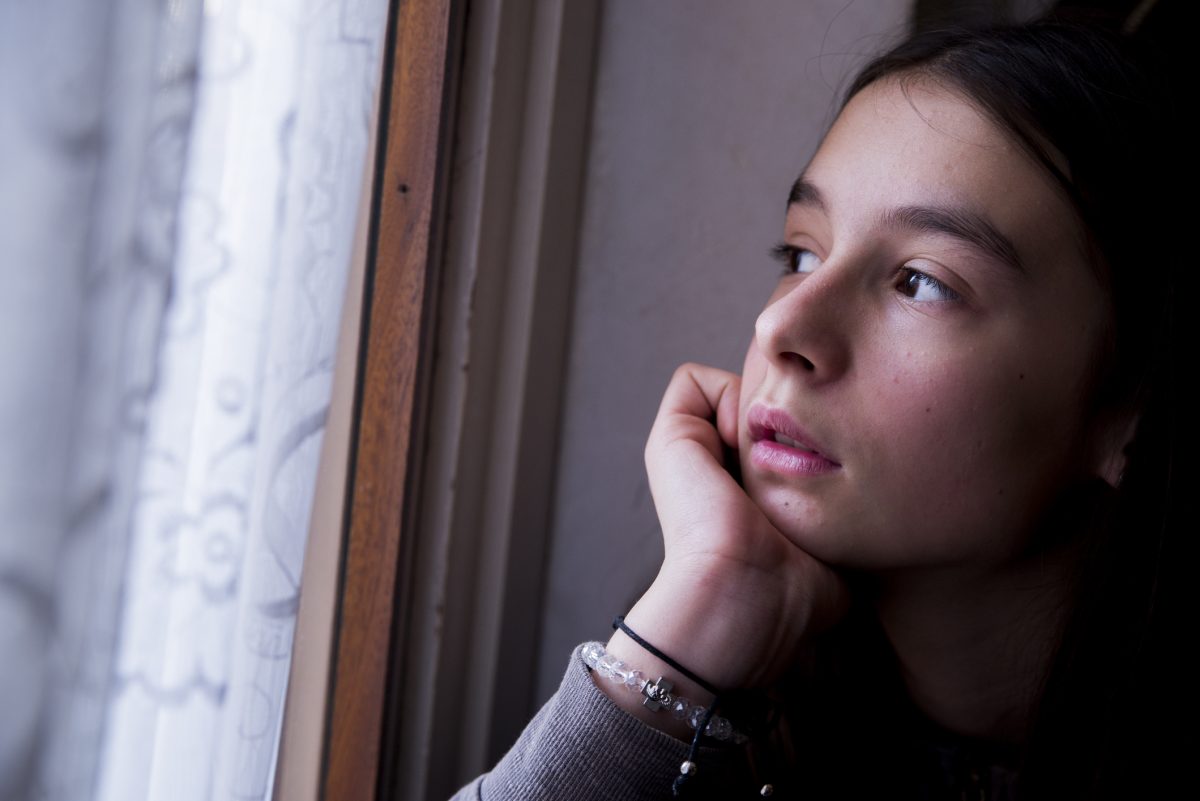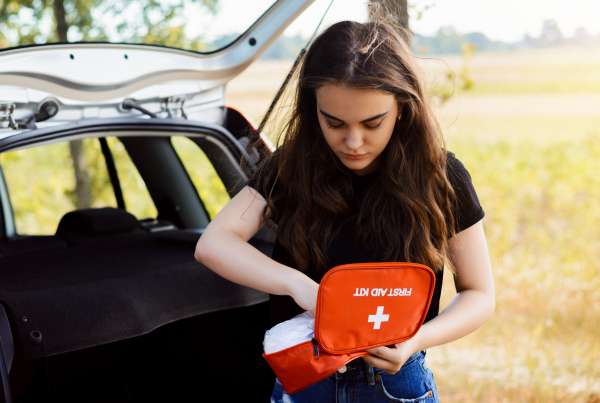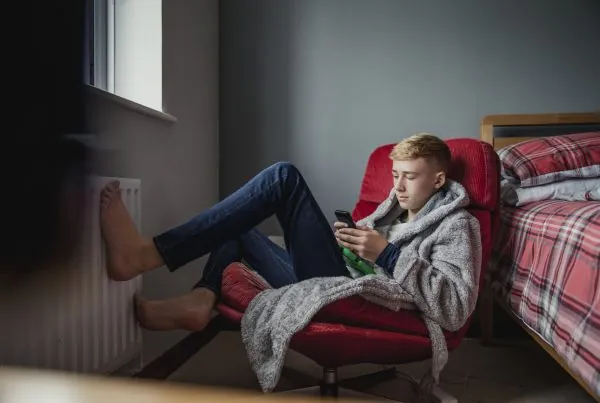Teen depression is one of the most common adolescent mental health issues in the world, second only to teen anxiety disorders. Depression is a serious and often debilitating mental health issue among teens and remains the most common cause of disability in the US. And for parents looking for different treatment options for their child, it’s not uncommon to wonder if depression medication for teens would be a better alternative than therapy or if it would be best to seek both.
Let’s talk about it.
When It’s More Than Sadness
More than just sadness, depression is overwhelming fatigue, unexplained aches, total loss of joy, increased pain sensitivity, lack of ability to generate or feel motivation, and unknown flare-ups in symptoms.
Many teens who struggle with depression struggle academically, have a hard time developing to their full potential and go through a much tougher road in life. Thankfully, depression is treatable. Unfortunately, there is no one-size-fits-all treatment plan that works.
How Is Depression Treated?
The first line treatment for any teen or adult with major depressive disorder, the most common mood disorder and most common form of depression is a combination of psychotherapy and selective serotonin-reuptake inhibitors (SSRIs).
SSRIs are some of the most recent antidepressants in a long line of different drug families, and they are some of the most well-researched psychiatric drugs in the world. But they are not a miracle cure for depression, and they often don’t work too well just on their own.
Psychotherapy is one-on-one talk therapy between a trained mental health professional and a patient. In the case of depression, the most commonly used therapeutic method is cognitive-behavioral therapy (CBT), a type of talk therapy developed in the 1970s and 1980s by combining the individual successes of cognitive therapy (focused on patient thoughts and thinking patterns) and behavioral therapy (focused on habits, actions, and controlling one’s responses in life).
When combined, modern SSRIs and talk therapy represent the most successful treatment plan for depressed patients. But the success rate is never 100 percent. Furthermore, it can take time for both therapy and the medication to work.
What Are Antidepressants?
There are half a dozen different subtypes of SSRI and well over a dozen branded and generic SSRI drugs. Each of these compounds reacts in different patients differently, with varied potential side effects and side effect severity. Some people react the least to citalopram, while others are better off on sertraline.
When a patient takes a recommended SSRI, it can take multiple weeks for the drug to begin taking effect. If side effects show up and they inhibit a patient’s life, it can take several more weeks for the drug to be completely flushed out before a different compound is used.
SSRIs are not addictive nor particularly dangerous. The side effects can be frustrating – such as weight gain, loss of sex drive, and drowsiness – but SSRIs are very, very rarely associated with serious risks, such as rare cases of increased suicidality or heart arrhythmia. Nevertheless, it can take a few different tries until a patient finds a drug that works best for them.
If no SSRIs work well, a patient may consider different, older classes of antidepressants, such as SNRIs, tricyclic antidepressants, MAOIs, and atypical antidepressants. While these may work, they are usually associated with a higher risk of side effects.
Therapy for Depression
Talk therapy is not a drug and does not have conventional side effects. But as far as treatment methods go, there is no guarantee that a patient will respond well to individual therapy either. Some teens are very receptive, while others have a much harder time responding or opening up in therapy. Some teens do better in a group setting, while others prefer solely one-on-one therapy sessions. While CBT is the premier therapeutic treatment method, there are other valid forms of talk therapy for depression, including dialectic behavioral therapy, behavioral activation therapy, and interpersonal psychotherapy.
Even among first-line treatments – like antidepressants and therapy – it’s hard to say which is better. Furthermore, it’s hard to say which is best for your teen. SSRIs and CBT are the most studied treatment methods, but that does not mean you or your teen won’t respond better to older drugs and a completely different therapy plan.
Are Antidepressants Better Than Placebo?
The research on antidepressants can be confusing. There are studies supporting the continued use of antidepressants in the treatment of depression. There are also conflicting review papers that find that antidepressants match placebo at best and that serotonin availability may not be a factor in depressive symptoms.
One particularly polarizing review involved a thorough analysis of the evidence behind the serotonin theory of depression, one of the cornerstones of antidepressant use. It found that there is no consistent evidence nor support for the hypothesis that depression is caused by lowered serotonin activity based on current research.
Furthermore, the criteria for inclusion in a phase III trial for an antidepressant do not necessarily reflect the reality of the majority of people who are prescribed antidepressants. Many people who take antidepressants would not actually be included in a clinical trial for the drug they are taking.
The rabbit hole of research on the efficacy of depression treatments goes deep. Here are some interesting things research can tell us:
- Mindset matters a lot. A patient’s receptiveness to both therapy and antidepressant drugs can be highly indicative of their success.
- Antidepressants need more research. The link between depression and serotonin availability is not clear, and what we do know tells us that medication on its own is not often a useful therapeutic tool.
- Patients differ wildly. Depression is a condition with many comorbid conditions, all of which can modify and exacerbate depressive symptoms. Teens with depression often also struggle with anxiety, with chronic health issues like asthma and irritable bowel syndrome, or may have a history of drug use. Treatment plans must be highly individualized to help patients.
Depression Medication for Teens or Therapy: Which is Best?
Based on what we currently know, the best available answer is both, although therapy may be more important than medication.
While the serotonin theory of depression may not hold up in the long term, antidepressants seem to work – even if their mechanism of action is not completely understood. What we can agree on is that medication use must occur alongside therapy for the best effect.
Furthermore, not all teens will respond effectively to medication and therapy. Some teens need a different treatment approach or need a treatment plan that takes other factors into consideration, including comorbid mental and physical health conditions.
What About Treatment-Resistant Depression Options?
There are other treatments for depression than just antidepressants and therapy. However, the jury is often still out on these treatments. They include ketamine (a controversial dissociative anesthetic drug), electroconvulsive therapy, and transcranial magnetic stimulation.
Despite being one of the most common mental health conditions on the planet, depression is not completely understood. In any given case, careful consideration of all factors is needed, and treatment must be individualized. More importantly, therapy nearly always plays an important role in depression treatment.
Get Depression Treatment for Teens
Are you or your teen struggling with depression? Reach out to Visions Treatment Center to explore depression treatment for teens today.









